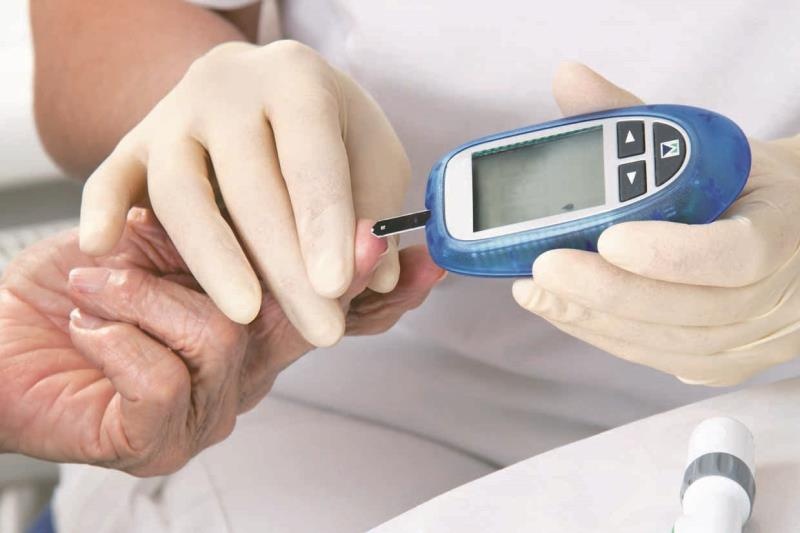
Without Medications: Tips to Regulate Blood Sugar in 14 Days
SadaNews - The rise of blood sugar or diabetes has become a common health issue in recent years. According to a report published by the Times of India, the reasons stem from most people's busy schedules, which prevent them from having balanced meals, in addition to a sedentary lifestyle, increasing the risk of elevated blood sugar and gradually harming the body in the long run.
According to the American Heart Association, if left untreated or uncontrolled in the long run, high blood sugar can affect the cardiovascular system, cause nerve damage, kidney failure, eye damage, foot problems, and other health conditions.
Therefore, if a person is suffering from high blood sugar and wants to regulate it without medication, Dr. Sudhanshu Rai, a metabolism specialist and sports physiotherapy expert, offers some tips in a recent social media post, stating that "simple daily habits are more important than complex tricks. These steps can be followed for 12 weeks, and the person will notice a real difference," explaining that high blood sugar indicates problems with diet and timing, and if these two are addressed, the person will see results.
1- Avoid Sugar and Carbohydrates
Dr. Rai advises stopping the consumption of sugar and carbohydrates like bread and rice. A study conducted in 2005 titled "Feasibility of Low-Carbohydrate Diets in Managing Diabetes" highlights how low-carb diets improve blood sugar control, reduce body weight, and lower insulin usage.
At the same time, the Harvard Health Blog, under the title "Low-Carbohydrate Diet Helps Lower Blood Sugar Levels in Individuals with Prediabetes," states that "for individuals with prediabetes, a low-carb diet can rapidly restore elevated hemoglobin A1c levels to a healthy range."
2- One Spoon of Cinnamon Daily
Dr. Rai recommends including cinnamon in the daily diet. Cinnamon can be consumed by adding a sprinkle to morning tea, as this simple trick helps control any sudden spike in blood sugar levels during the day.
According to a study conducted in 2019 titled "Effects of Various Amounts of Cinnamon on Blood Sugar Levels in Healthy Adults," it was found that cinnamon supplements (1 to 6 grams daily) reduced fasting blood sugar levels by 18-29% and improved hemoglobin A1c levels in patients with type 2 diabetes.
3- High-Fiber Salad
To naturally control blood sugar levels, Dr. Rai recommends having a high-fiber salad, followed by a low-carb meal. A study conducted in 2023 showed that consuming a vegetable salad before rice resulted in a noticeable decrease in blood sugar levels post-meal, compared to having rice before the salad.
The study also states that the fiber and polyphenols in vegetables slow down carbohydrate absorption, reducing post-meal blood sugar spikes. Therefore, the study indicates that following a dietary pattern focused on vegetables first can significantly help in regulating blood sugar.
4- Complex Carbohydrates
Choosing complex carbohydrates over simple ones can greatly help regulate and improve blood sugar levels. Simple carbohydrates include foods like white bread, pastries, and sugary drinks. When consumed, these foods quickly break down into glucose, causing rapid spikes and drops in blood sugar levels.
However, when consuming complex carbohydrates - such as whole grains, legumes, and vegetables - they are digested slowly due to their high fiber content. Consequently, glucose is released gradually, providing stable energy and preventing sudden spikes in blood sugar while improving insulin sensitivity over time.
5- Bitter Gourd Juice Three Times a Week
Dr. Rai also recommends drinking bitter gourd juice three times a week to naturally control blood sugar levels. A clinical trial published in the journal "Complementary and Alternative Medicine" in 2017 found that bitter gourd juice significantly reduced blood sugar levels in patients with type 2 diabetes, with notable effects appearing 90 minutes after consumption.
6- Walking for 20 Minutes
Dr. Rai emphasizes the importance of walking for 20 minutes after each meal, as this helps prevent sudden blood sugar spikes, if they occur. A study conducted in 2022 titled "Effects of Postprandial Walking on Glucose Response After Meals with Different Characteristics" and published in the journal Nutrients found that brisk walking for 30 minutes right after meals significantly reduced post-meal glucose peaks in individuals. It also aids in improving blood sugar response in healthy people.
7- Sugar Alternatives
Replacing sugar with natural sweeteners like stevia can help naturally regulate blood sugar levels. Consuming sugar leads to increased blood sugar levels and may also cause inflammation in the body, negatively affecting health in the long run.
Switching refined (white) sugar with natural alternatives like stevia prevents sudden glucose spikes, making it a safer option for individuals with diabetes or prediabetes.
8- Small and Frequent Meals
Eating small and frequent meals instead of three large meals a day can help maintain stable blood sugar levels throughout the day.
When a large meal is consumed, especially one rich in carbohydrates, blood sugar can rise rapidly and then drop sharply, leading to fatigue, cravings, or irritability.
However, eating smaller, balanced meals throughout the day prevents these fluctuations by providing a steady release of energy. It also reduces the strain on insulin production, making it easier for the body to manage glucose.

Scientists Attempt to "Intercept Cancer" Before Its Formation.. Know the Details

American Fact-Checking Platform Exposes Trump's Exaggerations in State of the Union Addres...

How Mourinho Deceived Everyone and Watched the Match Between Real Madrid and Benfica from...

Fat Loss Improves Blood Pressure and Supports Immunity

Galaxy S26 Armed with a Smart Feature to Combat the Most Dangerous Threats to Smartphones

Discovery of Microplastic Particles in 90% of Prostate Cancer Cases

Artificial Intelligence Diagnoses Children's Brain Tumors with 92% Accuracy Without Surger...

